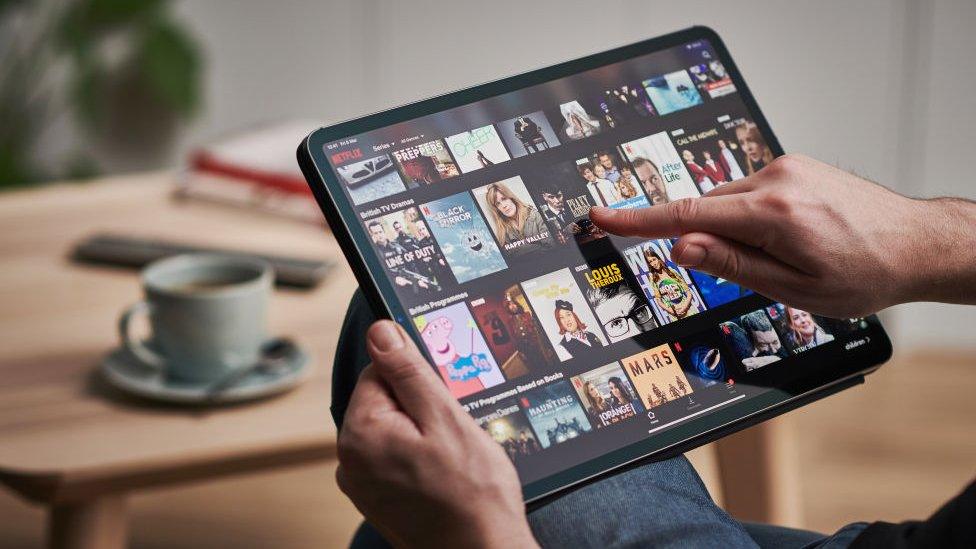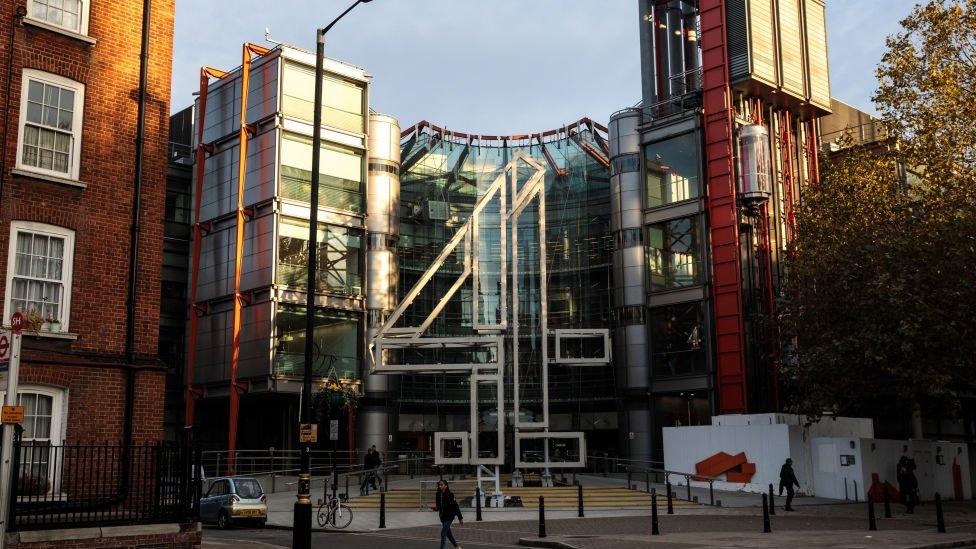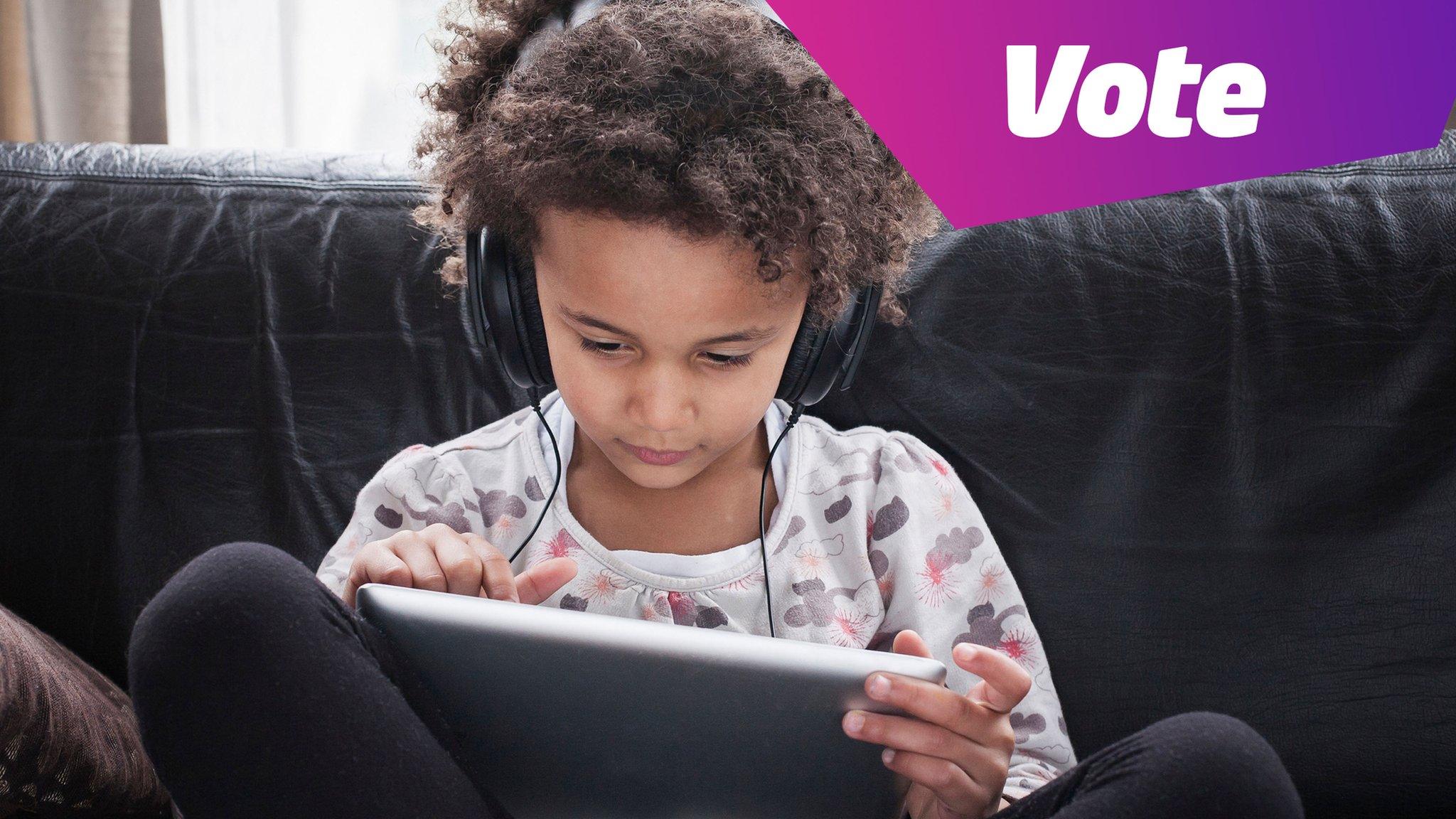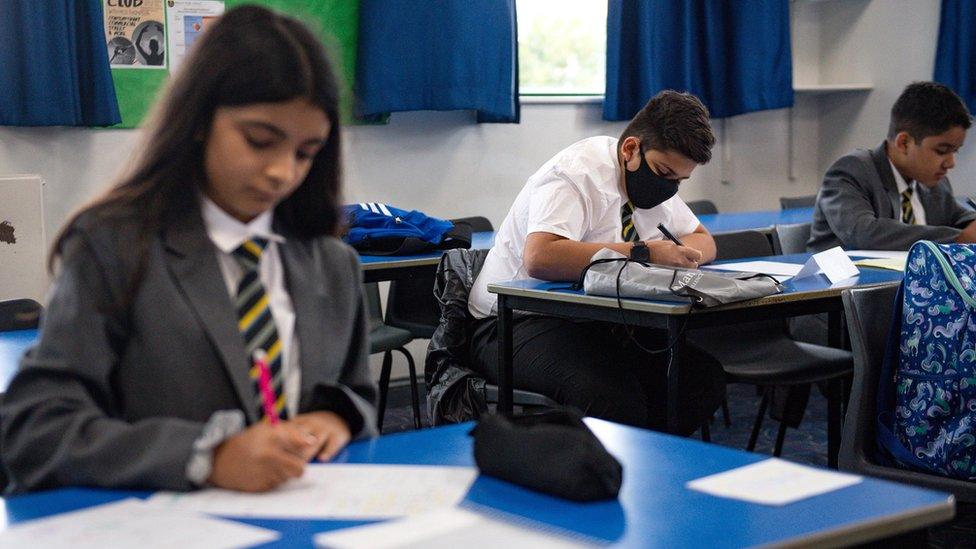Streaming is changing and here's why you should care
- Published
- comments

The government has announced major plans to change the way the television and streaming industry operates in the UK.
Currently, streaming services don't follow the same rules as television broadcasters like the BBC and ITV.
However, this could all change under the new plans.
Here is everything you need to know about the changes and why they will matter to you.
What are the proposals?

An estimated 15 million people in the UK are signed up to a subscription streaming service.
This means they pay a monthly fee in order to watch programmes on that platform over the internet.
However, streaming services like Netflix, Disney+ and Amazon Prime don't have to follow the same rules as traditional television companies like the BBC and ITV.
The television broadcasters have to work under the scrutiny of something called Ofcom.
Ofcom is a regulator which has control over, and sets rules about, what goes on TV.
This means it ensures that everything being broadcasted is fair, accurate, and isn't misleading the audience.
Broadcasters have to follow the Ofcom code which covers things like harm, offence, accuracy and impartiality.
HARM AND OFFENCE: The audience must be protected from the inclusion of harmful or offensive material. For example, factual programmes or factual portrayals shouldn't mislead the audience. And, programmes should not glamorise violent, dangerous or anti-social behaviour
ACCURACY AND IMPARTIALITY: Impartiality means not favouring one side over another and not giving your opinion of something. Accuracy means ensuring what goes out on a programme is factually correct.
Ofcom can give out big fines and even take away a company's the right to broadcast if the rules are broken.
The Culture Secretary, Oliver Dowden, hopes to bring in similar rules for streaming services so that complaints about the accuracy of certain programmes can be investigated.
He said that rules to regulate broadcasting had been made in a time where streaming services didn't exist yet.
Streaming services argue that they already follow a set of rules. Platforms with a head office in the UK abide by existing rules to stop any material which encourages hatred or is harmful to the audience.
While Disney+ and Amazon Prime are covered by this, Netflix isn't because its head office isn't in the UK.
A final decision on whether the new rules will be brought into law is expected to be made in the Autumn.
What else was announced?

The government also announced its plans to potentially sell Channel 4.
Currently Channel 4 - which shows programmes like The Great British Bake Off and Gogglebox - is owned by the government, alongside the BBC and ITV.
It's called a "public service broadcaster". This means it has to produce programmes which benefit the public rather than to serve the interests of companies and corporations.
If the government decides to sell Channel 4 then it'll be bought by a private company or individual.
When it was launched in 1982, Channel 4's purpose was to offer a culturally different view to the BBC and ITV.
Ever since, it has heavily supported British based television production companies who make its programmes.
However, the government believes selling Channel 4 will strengthen its ability to compete with streaming services which aren't public service broadcasters.
Smart TVs
The government also announced that it would go ahead with new laws to make sure that public service broadcasters are very prominent on smart TV menus.
- Published23 June 2021

- Published23 June 2021

